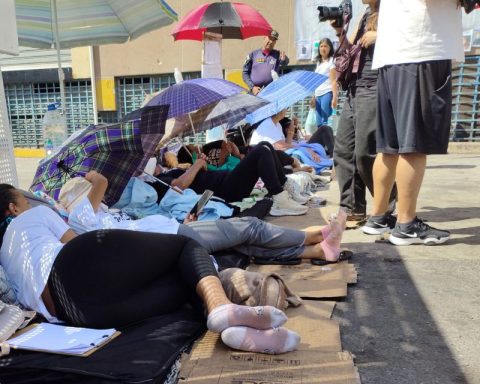The food safety It is a concern that has become more relevant in society and the world in recent years. Russia’s war with Ukraine has preceded different difficulties around food security due to the prices of agricultural inputs and the impact of the restriction of fertilizers in these countries.
(Strengthen the country from agriculture, an objective of the Development Plan).
That said, according to the latest update to the World Bank Group’s “Food Security” report, domestic food price inflation remains high around the world.
According to the entity, 93.3% of low income countries, 90.9% of lower middle income and 93% of upper middle income have registered inflation levels above 5%.
Likewise, the document indicates that the proportion of high-income countries with high inflation has also increased, where 85.5% of these experience high food price inflation.
Likewise, it is estimated that the agricultural price index has remained stable and is currently only one point higher. According to the report, “prices for wheat, corn and rice are 17%, 29% and 6% higher, respectively, than in September 2021.
Corn and wheat prices are 31% and 34% higher, respectively, than in January 2021, and rice prices are 15% lower.” The war between Russia and Ukraine has also affected different food security environments in the world. World Bank estimates indicate that in terms of trade, production and consumption of basic products, prices will remain high until 2024 “exacerbating food insecurity and inflation.
(Government confirms that this year there will be no health reform).
Thus, it is estimated that “the number of people affected by the food crisis or in a worse situation could reach 205.1 million in 45 of 53 countries or territories”.
For its part, the World Bank assured that as part of a global and comprehensive response to the current food crisis, “the World Bank Group made available up to US$30 billion over a period of 15 months for areas such as such as agriculture, nutrition, social protection, water and irrigation.
These funds will finance efforts to encourage food and fertilizer production, improve food systems, facilitate increased trade, and support vulnerable households and producers.”
Food security in Colombia
Faced with the particular results of Colombia, the report showed food inflation since September 2021, where the annual variation reached 12.4%, later the figure reached 13.7% in October, while for November the percentage increased to 15.3%.
For November and December of that same year, the figures were 15.3% and 17.3%, respectively.
Regarding the data to 2022, at the beginning of the year in January a result of 20.0% was estimated, while for February the figure continued to increase reaching 23.3%, for March and April, the rise continued evidencing with 26.3% and 27.0% respectively.
For May, a drop begins to be noticed, reaching an estimated annual variation of 22.0%, followed by June with 24.1% and 24.6% for June, with an upward trend again.
In terms of the situation, different sectors have spoken of the country’s food insecurity. In recent days, the Minister of Agriculture and Rural Development, Cecilia López, assured that before the pandemic, Colombia already had unjustifiable problems of food insecurity.
“In the country it was said that food insecurity was not due to lack of food, but rather due to lack of income. I am very worried because with the problem of rising inputs and what we are seeing in food prices, these situations may begin to combine, especially for the next harvest,” she said.
According to Jorge Bedoya, President of the Colombian Farmers Association (SAC), despite the difficulties, the country’s agricultural sector has guaranteed food security with an annual production of at least 73 million tons of food.
“The development of the countryside not only contributes to food security, but also to the generation of more than 3.5 million jobs that are essential to strengthen tranquility and stability in rural areas,” Bedoya said.
Diana K. Rodriguez T.
BRIEFCASE

















